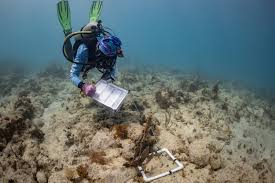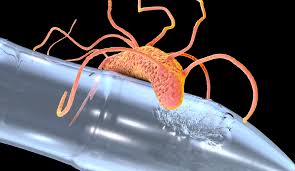Marine Biologists Track Coral Reef Recovery Signs of Hope for Fragile Ecosystems
Marine biologists worldwide have intensified efforts to monitor coral reef recovery, providing critical insights into the health and resilience of these vital underwater ecosystems. Coral reefs, often called the "rainforests of the sea," support an incredible diversity of marine life and provide essential services such as coastal protection and livelihoods for millions of people. However, years of environmental stressors, including climate change, pollution, and overfishing, have pushed many coral reefs to the brink of collapse. Against this backdrop, scientists are closely tracking recovery patterns, hoping to better understand how reefs can bounce back and what interventions might accelerate their healing.
One of the major challenges in reef recovery is the increasing frequency and severity of coral bleaching events, caused by rising sea temperatures. Bleaching occurs when stressed corals expel the symbiotic algae that give them color and nutrients, often leading to mass mortality. However, not all corals respond the same way. Marine biologists are studying variations in bleaching resilience among different coral species and populations. Through field surveys and underwater monitoring technologies like drones and remote sensors, researchers are gathering real time data on which corals survive bleaching and why. This information is crucial to identifying resilient coral strains that can serve as the foundation for restoration efforts.
In addition to natural recovery, active restoration methods are gaining momentum. Coral gardening, for example, involves collecting small coral fragments from healthier reefs, growing them in underwater nurseries, and then transplanting them back to degraded areas. These nurseries provide controlled conditions where corals can grow more rapidly and adapt to local environments before reintroduction. Recent experiments have shown promising results, with transplanted corals exhibiting better survival rates and growth compared to previous attempts. Furthermore, scientists are experimenting with selective breeding and genetic techniques to cultivate corals that are better adapted to warmer and more acidic ocean conditions, aiming to future proof reefs against climate change.
Long term tracking of coral recovery is essential to understanding the success of these interventions. Multi year studies conducted at key reef locations reveal complex dynamics. For example, some reefs show signs of steady coral cover increase over several seasons, indicating successful recruitment and growth, while others struggle with recurring disturbances like storms and disease outbreaks. Marine biologists emphasize the importance of comprehensive monitoring programs that combine satellite imagery, underwater photography, and water quality analysis. This data helps paint a detailed picture of reef health, informs adaptive management strategies, and helps policymakers allocate resources more effectively.
Community involvement is another cornerstone of coral reef recovery efforts. Coastal communities, many of whom depend on reefs for food and tourism income, have become active partners in conservation. Local stewardship programs teach sustainable fishing practices, reduce pollution through waste management, and promote awareness about reef protection. In many places, community led reef monitoring programs empower residents to collect valuable data, fostering a stronger connection to the environment. Such grassroots initiatives complement scientific research and help create more resilient marine ecosystems by reducing human pressures.
Despite these positive trends, coral reef recovery faces significant challenges. Climate change remains the overarching threat, with ocean temperatures expected to continue rising. Additionally, land based pollution from agricultural runoff, sedimentation, and plastic waste compromises water quality, weakening corals’ ability to recover. Overfishing disrupts reef food webs, allowing algae to overgrow and outcompete corals. Addressing these issues requires coordinated efforts across sectors, integrating scientific research, community engagement, and policy reforms. Marine biologists advocate for stronger marine protected areas, better land use regulations, and global action on greenhouse gas emissions.
Looking forward, the combination of technological advances, ecological research, and community participation gives hope for the future of coral reefs. Emerging tools like environmental DNA (eDNA) analysis enable rapid assessment of reef biodiversity, while artificial intelligence helps predict bleaching events before they occur. Restoration efforts that blend natural resilience with human ingenuity are beginning to bear fruit in select areas. As marine biologists continue to track coral recovery and refine their approaches, these fragile ecosystems stand a better chance of surviving and thriving in a changing world. The path is challenging, but the collective will to protect coral reefs is stronger than ever.
Science











